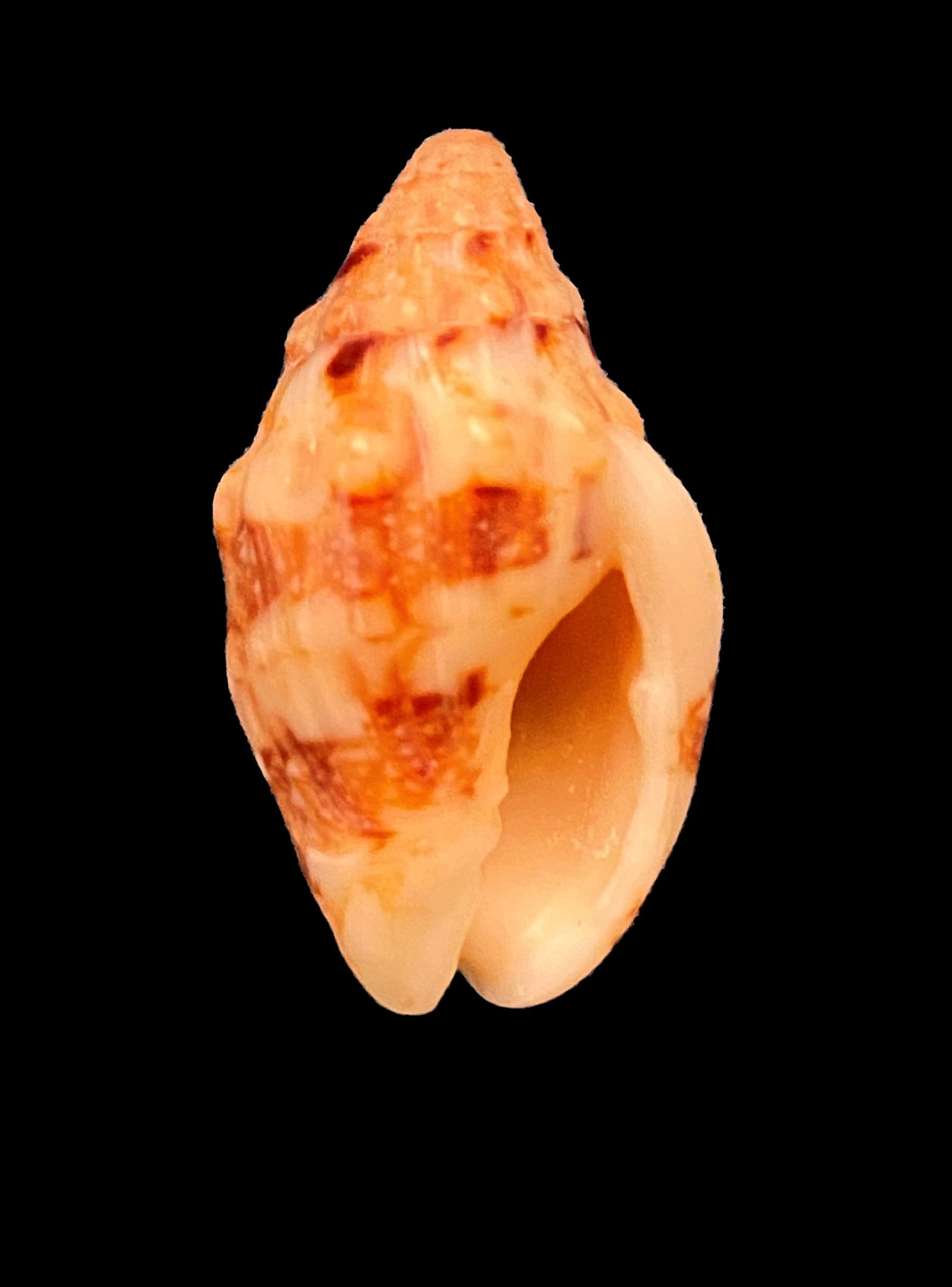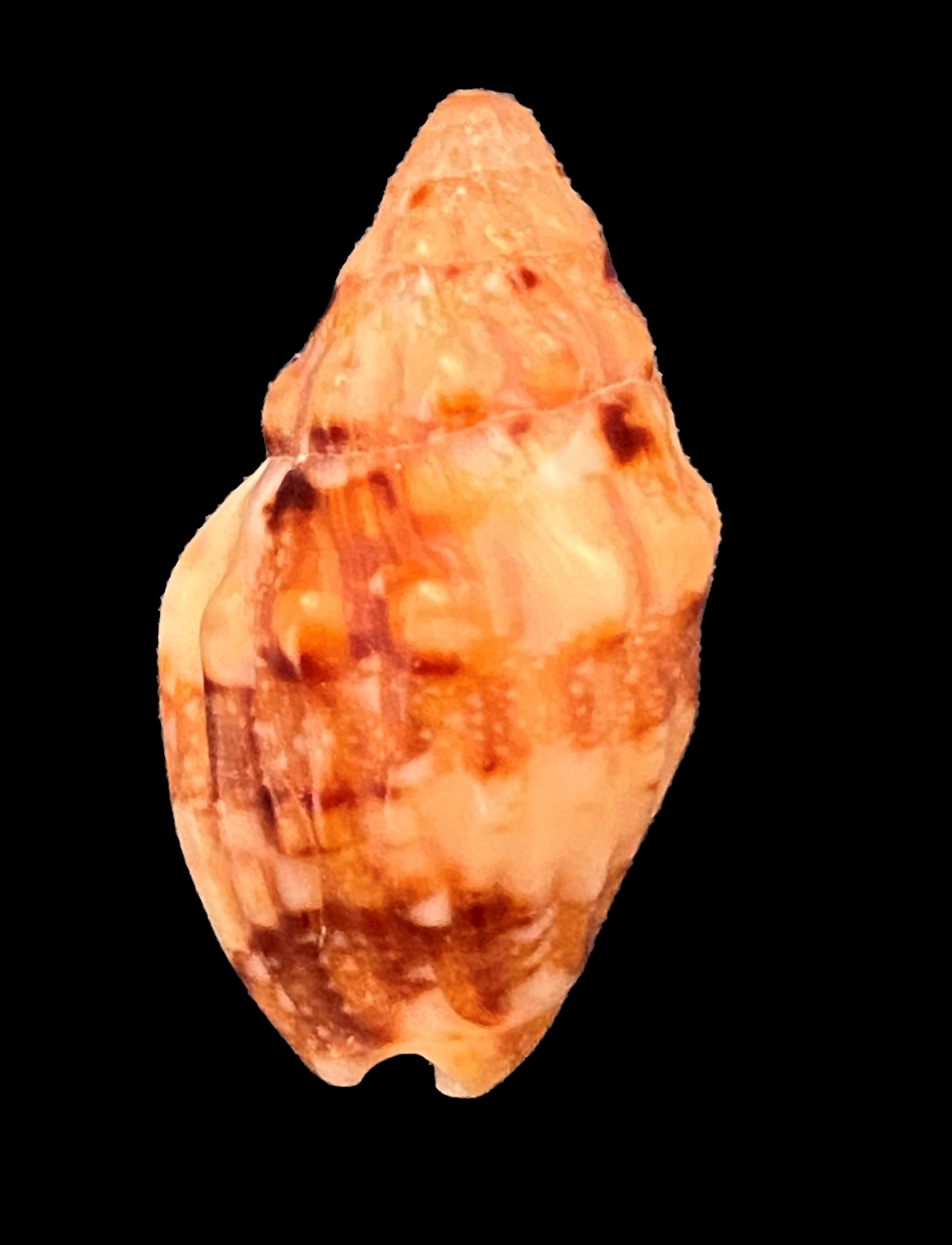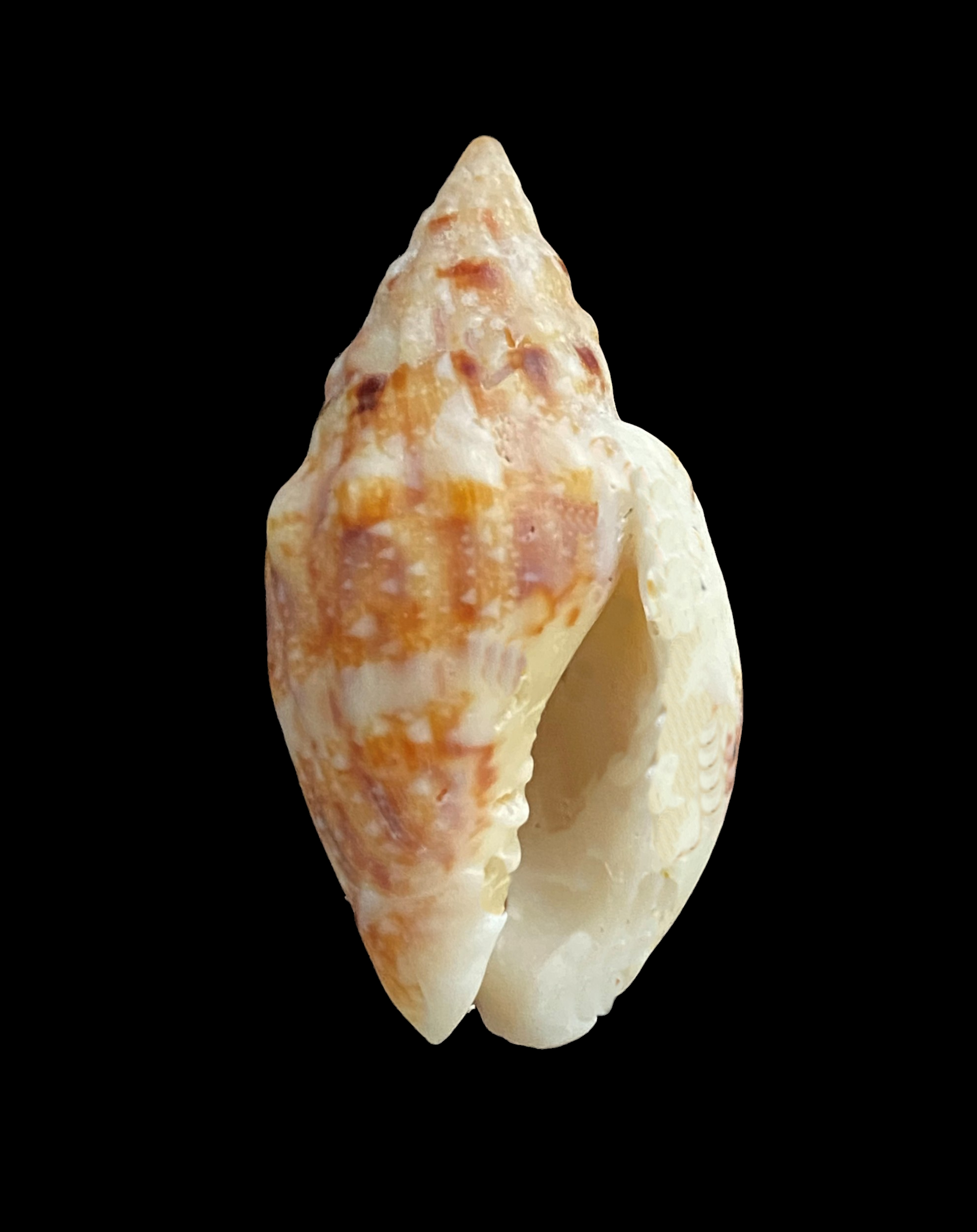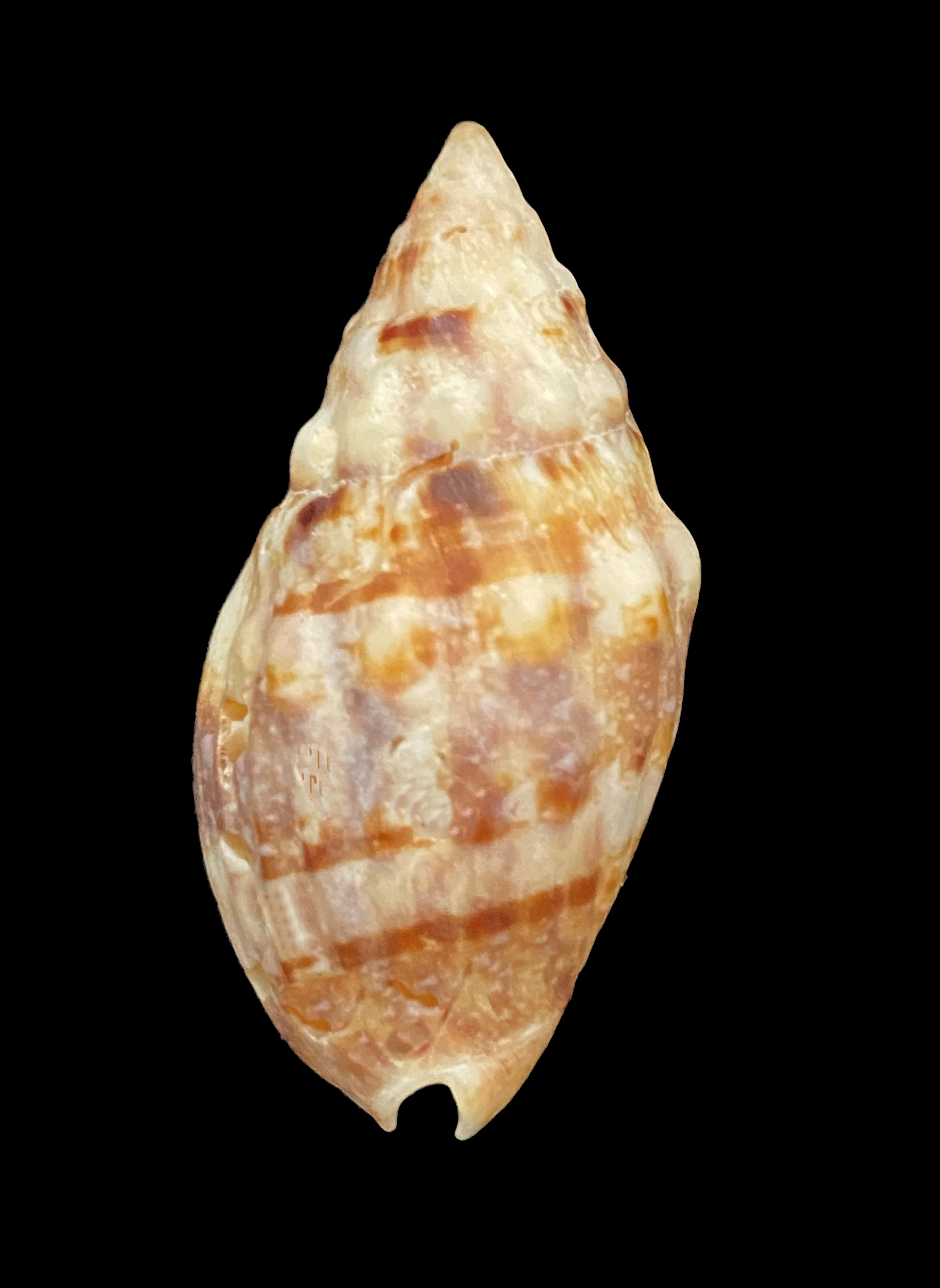Cuming’s Lyria Shell, Enacta cumingii

 Cuming’s Lyria Shell, Enacta cumingii. Shell collected off the beach at Punta Chivato, Baja California Sur, April 2022. Size: 2.6 cm (1.0 inches) x 2.5 cm (1.0 inch). Collection, photograph and Identification courtesy of Colin Campbell, DVM, Punta Chivato, Baja California Sur.
Cuming’s Lyria Shell, Enacta cumingii. Shell collected off the beach at Punta Chivato, Baja California Sur, April 2022. Size: 2.6 cm (1.0 inches) x 2.5 cm (1.0 inch). Collection, photograph and Identification courtesy of Colin Campbell, DVM, Punta Chivato, Baja California Sur.

 Cuming’s Lyria Shell, Enacta cumingii. Shell collected off the beach at Punta Chivato, Baja California Sur, April 2022. Size: 3.4 cm (1.4 inches) x 1.7 cm (0.7 inches). Collection, photograph and Identification courtesy of Colin Campbell, DVM, Punta Chivato, Baja California Sur.
Cuming’s Lyria Shell, Enacta cumingii. Shell collected off the beach at Punta Chivato, Baja California Sur, April 2022. Size: 3.4 cm (1.4 inches) x 1.7 cm (0.7 inches). Collection, photograph and Identification courtesy of Colin Campbell, DVM, Punta Chivato, Baja California Sur.
Cuming’s Lyria, Enacta cumingii (Broderlip, 1832), is a gastropod mollusk that is a member of the Volutidae Family of Volutes. This species was named in honor of Hugh Cuming, a British natural historian collector in the 1800s who was known as the Prince of Collectors. He amassed a shell collection of over 80,000 specimens and 100,000 dried plant specimens that included birds, plants, reptiles and shells from Chile, Mexico, the Indian Ocean, and the South Pacific Ocean. Cuming custom built a yacht to support his collecting. Twenty-four species have been named in his honor.
Cuming’s Lyria has an ovate profile, narrow apertures and a thickened outer lip with the columellar callus roughened above the columellar folds. The anterior folds are significantly larger than the posterior folds. They are very similar to and easily confused with the Barnes’ Lyria, Enacta barnesii (more rounded spire, less nodose ribbing). The exterior of the shell is cream to light tan to gray in color, with darker spots that may form bands; the interior is white. Cuming’s Lyria reach a maximum of 3.0 cm (1.2 inches) in length and 1.7 cm (0.7 inches) in diameter.
Cuming’s Lyria are found within sand substrate in the intertidal zone to undetermined depths. They are found in all Mexican waters of the Pacific Ocean with the exception that they are absent from Magdalena Bay, northward along the coast of the central Baja and Baja California.
Synonyms is Enaeta pendersenii and Voluta cylleniformis.